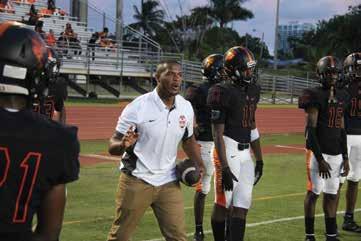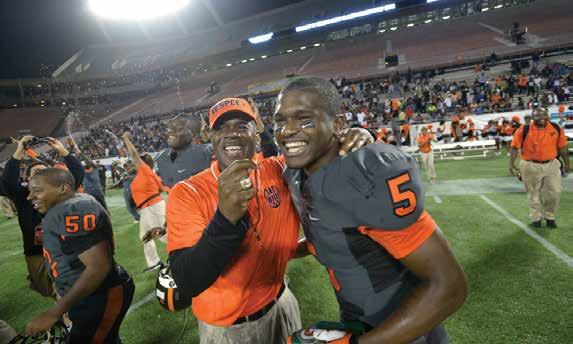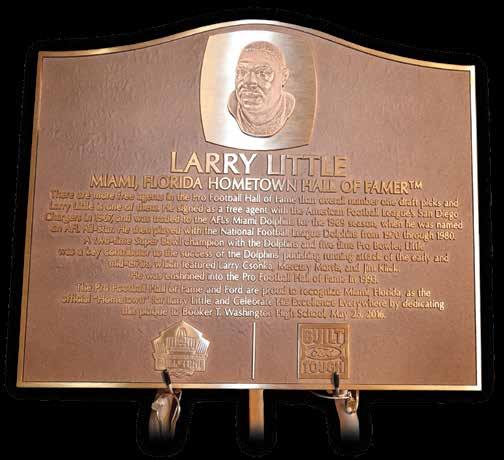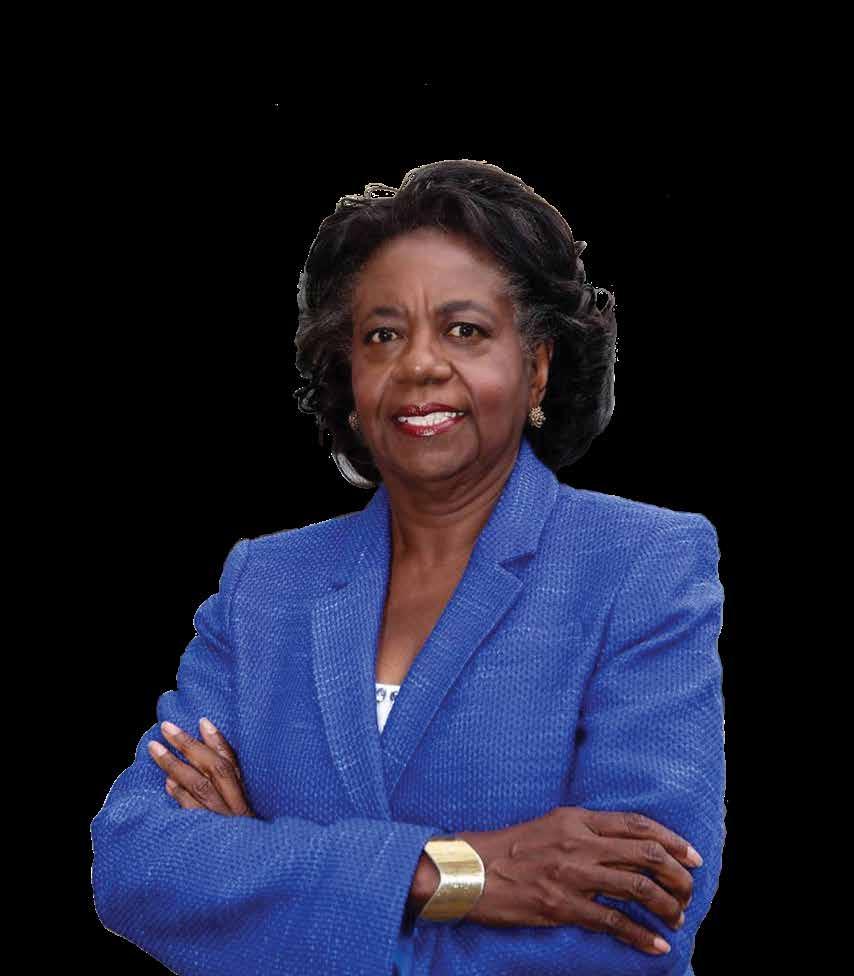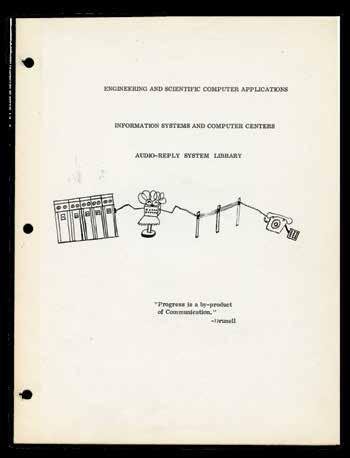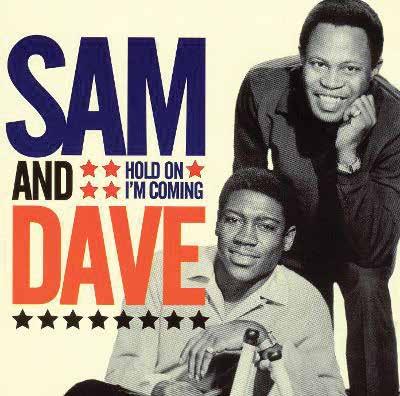
7 minute read
Unforgettable Man Charles L. Williams
By Marian R. Shannon
When Charles L. Williams came to Miami, in 1942, he made a phenomenal impact upon the Washington Heights community in the “magic city”, Miami. For nineteen years, he gave a full measure of devotion to his work as the principal of Booker T. Washington Junior-Senior High School; to his civic responsibility; to his fraternal affiliation, and especially to the enhancement of cultural and social groups within the school and community.
Advertisement
Nineteen years after his death, June 7, 1970, his legacy is still reflected in the many lives with whom he came in contact and helped to become contributing members of this community and elsewhere.
His wide range of interests and participation attests to his ability not only as an educator but also as a dedicated humanitarian whose influence continues to bring residual benefits through the lives he touched in Dade
County. The film “Lean On Me”, about principal Clark and his method of securing discipline, helps one to recall “Prof” Williams and his many methods of getting your attention. There were many times when everyone had to be embarrassed to “calm” the few who were unbelievers; but, the other ones made you proud. Especially so if you were sponsoring a club or like the newspaper staff and wherever you went, the discipline and demeanor of the students received compliments from everyone. Many educators at Bethune-Cookman, FAMU (FAMC, too), Lincoln University, and Atlanta schools set out to recruit Charles L’s students for their schools. Booker T. was the training ground for teachers, leaders, and administrators, and the graduation exercises were always placed high on community calendars - you knew you would see something special at a Booker T. commencement. General accomplishments include the creation of an atmosphere of teamwork. BEAUTIFICATION and CLEANLINESS became the passwords. Excellence in educational performance and dignified “showmanship” was evident in the myriad of activities of the school. The school became a stage for “culturally deprived and less advantaged”. There was a reception for all parents and patrons with a host and hostess to welcome them. Students built stage props and a parent painted murals on walls. Girls in home economics made draperies and assisted in building a cyclorama to enhance the auditorium stage and learned to prepare simple, as well as, exotic menus. Many saw the publication of student, teacher, and P.T.A. handbooks, and award-winning school newspaper and a yearbook. Seminars were held for students for on-the-job training. Charles L. encouraged teachers to be creative, progressive and innovative. He instituted the program of teacher counseling in the late 40’s and gradually sold the program to the country. Teacher assistants (FTA) helped to ease the job of paper work for the teacher. Teacher workshops were established through Negro (black) colleges because Negroes could not attend the other schools. He encouraged the University of Miami to offer courses in the evenings at Booker T. He re-organized departments according to subject matter and placed teachers within close proximity of each other. He encouraged further study and development of proficiency. His staff was in such demand for promotions that he often found himself without
Unforgettable Man
Charles L. Williams Principal

a full faculty as he could always find that “talent” each individual possessed, and so could others.


He would hire you, give you assistance and confidence!
A few firsts to be remembered - student participation in “School on the Air”- CBS; winners in TB Essay contests, Free Press essay, and Declamation contests; Negro History Week pageantry, speakers, plays, poster displays, quiz programs, and scrapebook projects on heritage awareness.
Courses in Latin American History and Human Relations, the latter started by Marie Delacie Roberts who received the first degree in Human Relations in the South. Vegetable garden projects were begun. Nursery school was established by Elaine Johnson Adderley for the purposes of training girls in the art of child care and as an aid to working mothers. An institutional foods course was begun to train boys and girls to become chefs and prepare foods for large groups. He opened the school library in the late evenings for the students to study and offered incentives to outstanding readers.
Creative writing and journalism classes were emphasized. BTW Press received the Freedom Foundation Medal of Honor. He bought a bus .... and fenced everyone in!
Student life with “Prof’ at the helm of the school abounded with activities and clubs - Quill & Scroll, Bible Society, Future Teachers of America, Allied Youth, New Homemakers, Girls’ Senate, Boys’ Congress, Future Nurses of America, Boy and Girl Counselors, Host and Hostesses and many class related groups. An outstanding

Barbara Williams Silver Knight Award Winner
Student Council was organized by Effie Tula Sutton, Dean of the Girls and was affiliated on the National level before it was common place for such. She was also the catalyst in the organization of most groups, including the Honor Society.
Seniors set up the first memorial garden, landscaped in memory of classmates and teachers who had died. Each Memorial Day, a special activity was planned. There was a schoolwide intercommunication system and students were trained to open the school day, deliver announcements, etc.
The award-winning school Patrol won national honors in the AAA
Competition in Washington, D.C. Booker T. had the first Miami Herald Silver
Knights - Barbara Williams and
Julius Lee. Willette Murrell was the first PEPSI COLA Scholar. In 1943, Pearlie Tate Jenkins, a member of the Class of 1928 and a brilliant mathematician on the faculty, wrote the words to the school song and “Prof” sang it to the tune of “Finlandia” so that everyone would know exactly how it was to be sung!
He started the exchange program with Dade County black schools and

started the first senior class fellowship Day (black schools shared this special event during graduation activities). A school clinic was opened with the idea of caring for first aid was established
In 1952, spearheaded by Effie T. Sutton, the school celebrated Charles L. Williams Day, sponsored by the Student Council.
He retired in June 1961. He died at Methodist Hospital in Jacksonville, Florida. He had served all of his adult life in activities focused on young people.
Julius Lee Silver Knight Award Winner & Mr. Leroy Washington Drama Teacher

Joe Lang Kershaw
BTW Class of 1930



Joe Lang Kershaw, Sr. was born (June 27, 1911 in Live Oaks Florida and passed away at the age of 88 years old on November 7, 1999. He was an American politician, civics teacher, and a graduate of Booker T. Washington Jr.-Sr. High School in 1930 and a graduate of Florida A&M University. The first African-American legislator in the state of Florida after Reconstruction, he was elected in November 1968 to serve in the Florida House of Representatives for Dade County and continued to serve for 14 years until 1982. He died of congestive heart failure at a hospital in 1999. His son, Joe Lang Kershaw, Jr. also served in the House of Representatives.
He taught Physical education and coached track at Booker T. Washington.
Kershaw served as chairman of the Elections Committee, working to increase public participation in the elections process statewide, and also introduced legislation that would lead to the formation of the Florida Human Rights Commission. Kershaw was known by his colleagues as “Cane Pole,” because he fought to exclude cane pole fishing, which was predominantly practiced by poor African Americans throughout Florida, from the statewide fishing license tax, which he succeeded in doing in 1976.
Member of the Florida House of Representatives from the 105th district In office 1968–1982 Personal details BornJune 27, 1911 Live Oak, Florida DiedNovember 7, 1999 (aged 88) Miami, Florida Political party Democratic Spouse(s) Terri Jo Barron Alma mater Florida A&M University




